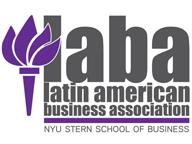Student Club Events
—
Stern Students Take 2nd Place in 2014 UNC Real Estate Development Challenge
—

A team of four Stern MBA students (Steven Stein, Kathleen Urbani, Lauren Sanders and Jason Davis) took second place and a $5,000 prize in the 2014 UNC Real Estate Development Challenge. It was the first time at the annual challenge that a team from Stern placed within the top three.
Student Club Events
—

A team of four Stern MBA students (Steven Stein, Kathleen Urbani, Lauren Sanders and Jason Davis) took second place and a $5,000 prize in the 2014 UNC Real Estate Development Challenge. It was the first time at the annual challenge that a team from Stern placed within the top three.



















